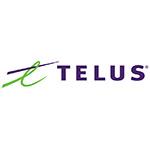
The ability to manage your family's health online allows professionals and specialists from across the health spectrum to work together - and work with you - to get you more accurate and efficient answers. The only thing they need to do this is your personal information. Is it risky or worthwhile? Good question! This is where I like to wear my multiple hats and analyze the pros and cons...
Wouldn’t it be awesome:
Overall, I love the concept of having all my information digitized and ready for anyone who needs it. Plus, those yellow vaccination cards? Always hard to find them when I need them, am I right?
Online information is susceptible at creation, transfer, and storage points. If I record my most personal health information digitally, I need to make sure it's safe.
I want to be sure that:
Overall, I want to make sure that I own my Personal Health Record (PHR), I am aware of what data is being used, and that it is being protected. The benefits of digital health are numerous. The only thing holding you back should be ensuring that your information is in good hands.
Let’s put it this way: Think back to grade school...like way back to the time before cell phones when you actually had to pass notes. You spy your crush, two rows over, sitting at their desk. You take a piece of paper from your Trapper Keeper and write the standard crush-response-form:
“I like you. Do you like me? Circle one: Yes/No”

Now, how would you get the note over there? This is crucial but private information! You need to make sure the note is passed to the right person, doesn’t fall in to the wrong hands, and cannot be used against you.
You spy your friend, Rachel. The reliable one. The one you know has your back. You know Rachel will pass the note to your crush, AND not read it on the way. Rachel is your girl.
The same deal applies to your private health information. You need it to get to the intended recipient but you need the data protected. The digital space has extra features over paper, like a record of who has accessed your data and when, but what about making sure the data is handled safely and with discretion? Assurance comes in the form of a privacy policy, which is a company's personal guarantee.
This is where having a bigger and a well-established digital health provider comes in handy. Every company should have a privacy policy or data security policy that protects your information. In Canada, TELUS is the largest health technology company. TELUS Health provides digital solutions for physicians, pharmacists, specialists, and most importantly, consumers like us. As part of their privacy policy, they use a Privacy Impact Assessment (or PIA) to analyze what information is collected by each specialist, what the intended use of the information is, as well as the consent and choice of the user/patient. Additionally, they review how the data is encrypted, which is like applying a secret code to your message where only you and the recipient have the key to decode it. Encryption protects you against hackers. Plus, TELUS knows security. They have been protecting our wireless data for decades. This is exactly the level of due diligence we want on our most personal of data.
Ultimately, the choice is yours on how comfortable you are with what you share and how you share it. Just consider that you have always shared your data with individual providers like doctors, pharmacists, and health specialists. By using a secure service, digital health provides a channel to connect your health team members, allows you better access to your own data, and puts us all a step closer to instant personalized health care. And no more worrying about any sensitive info being seen by the wrong people...like back in grade school.
